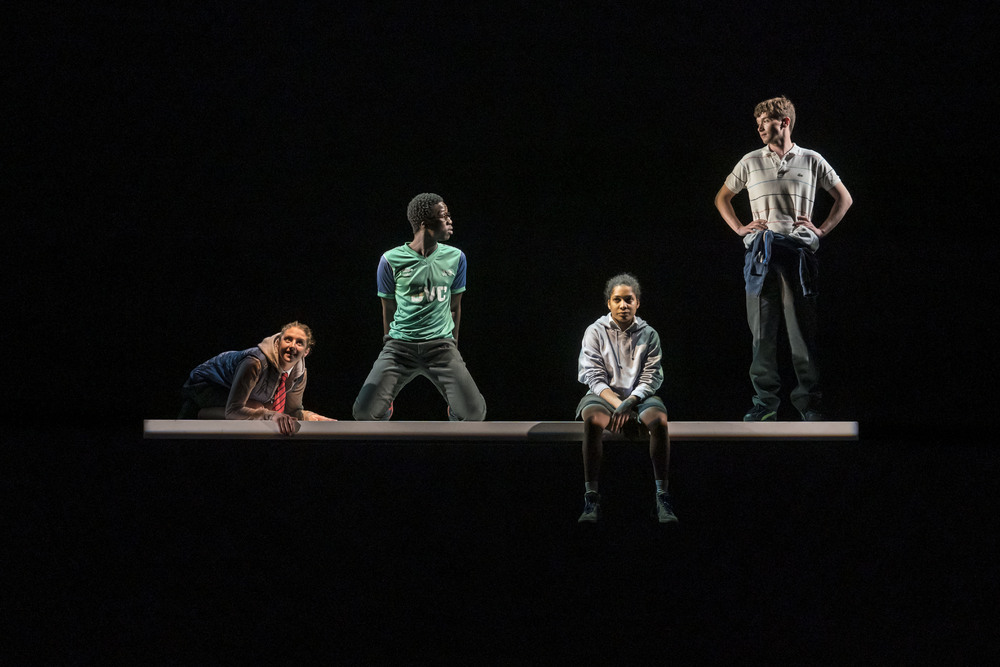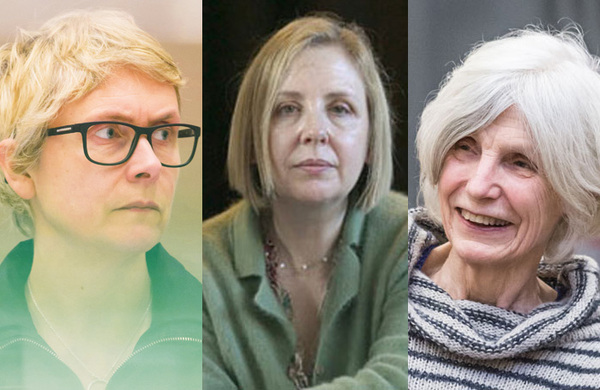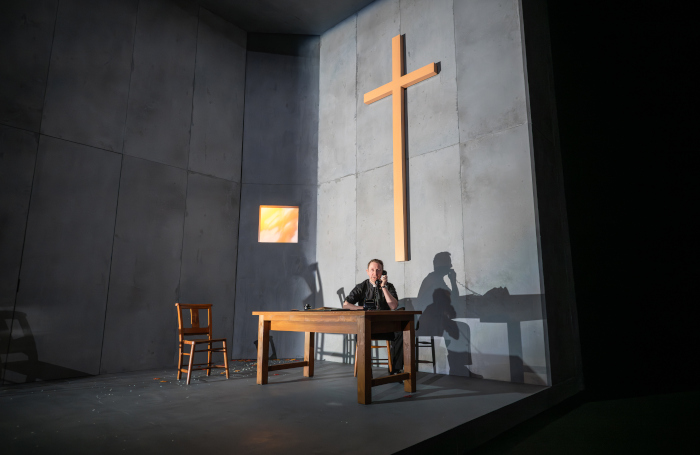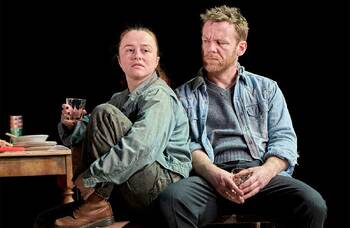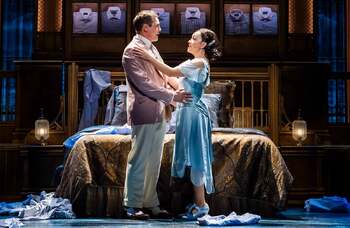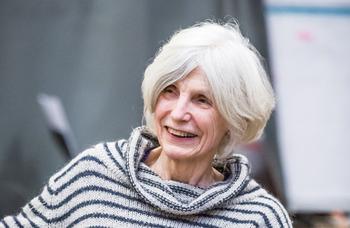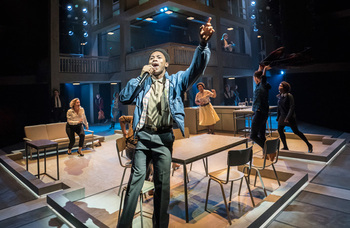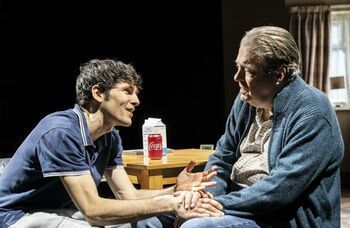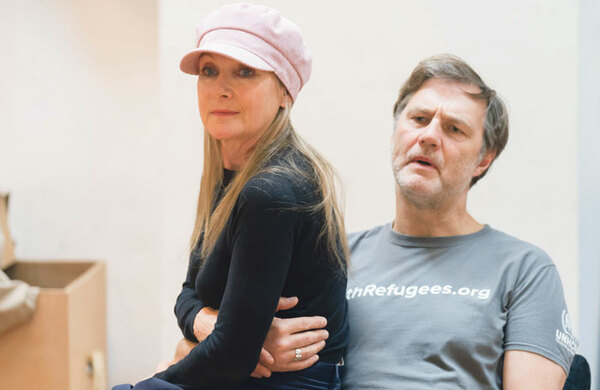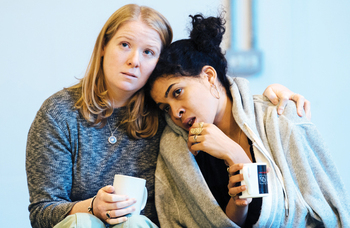Experimental art is usually synonymous with forbidding high seriousness. The outstanding exception to that is the consistently inventive yet audience-friendly theatre of Caryl Churchill.
In her captivating quartet of new works – the thrillingly theatrical equivalent of three short stories and a novella, with even an acrobat and a juggling act thrown in – she casts an immediate spell over her audience, catches everyone off-guard with laugh-out-loud humour, then silences the auditorium with shards of pained recognition.
The moment the curtain rises on Glass, Churchill’s intent is clear. Sculpted in Jack Knowles’ lighting out of sheer darkness and perched on designer Miriam Buether’s mantelpiece, Kwabena Ansah and Patrick McNamee are looking at Rebekah Murrell, who is playing a girl made of glass. Such is the assurance of James Macdonald’s, crystal-clear, flawlessly light-touch production that this metaphorical presentation – the characters include a red dog and a clock – feels utterly and beguilingly natural. Across seven snapshot scenes, we’re catapulted into teenage pain, self-awareness and suicide.
The glass girl’s friend says he has something to tell her about his father. He whispers a line, inaudibly, to her. Recoiling, she replies: “Seven. From when you were seven.” Despite no other allusion to it, the audience instantly senses and feels the implied abuse, a powerful indication of the engrossing economy of Churchill’s elliptical dialogue – there is not one lazy word all night – and her ability to charge up silence.
By contrast, the near-monologue Kill is more prolix. Tom Mothersdale, barefoot and seated on a cloud, represents the gods patiently listing the murdering behaviour of the characters propelling the Greek myths. With ever-decreasing irony, he grows frantic with raging despair at the humans who “made us up”.
Murder, understandably, also stalks the drolly comic Bluebeard’s Friends (its full title). Macdonald deftly hands Churchill’s unattributed lines to a quartet of unnamed characters for short, wittily opposing scenes in which the foursome reflect on discovering that their friend Bluebeard is a serial killer.
A warmly imperious Sarah Niles casually muses upon the fact that Bluebeard asked her to marry him; in another scene, Deborah Findlay frantically cuts up “books where women get harmed and it’s not condemned”. Bald as that sounds out of context, within the play you never feel you are being (over)fed what the author thinks.
The plays’ themes are huge and classical – killing, kindness, responsibility, the limits of friendship, faith. In Imp, the longest, a family story is shown in wholly naturalistic scenes between ageing cousins (Findlay and Toby Jones), their orphaned Irish relative (Louisa Harland) and homeless Mothersdale with whom she embarks upon an affair. Churchill tenderly portrays the beliefs that hold a life together, only slowing shifting the story towards darkness. As her character Dot blisters with rage at her faith being stolen from her, Findlay is genuinely terrifying.
The sheer audacity of the plays is exhilaratingly fresh. That they come from an 81-year-old dramatist is extraordinary.
Royal Court announces year-long programme including Caryl Churchill triple bill
More Reviews
More about this person
More about this organisation
More Reviews
Recommended for you
Most Read
Across The Stage this weekYour subscription helps ensure our journalism can continue
Invest in The Stage today with a subscription starting at just £7.99
